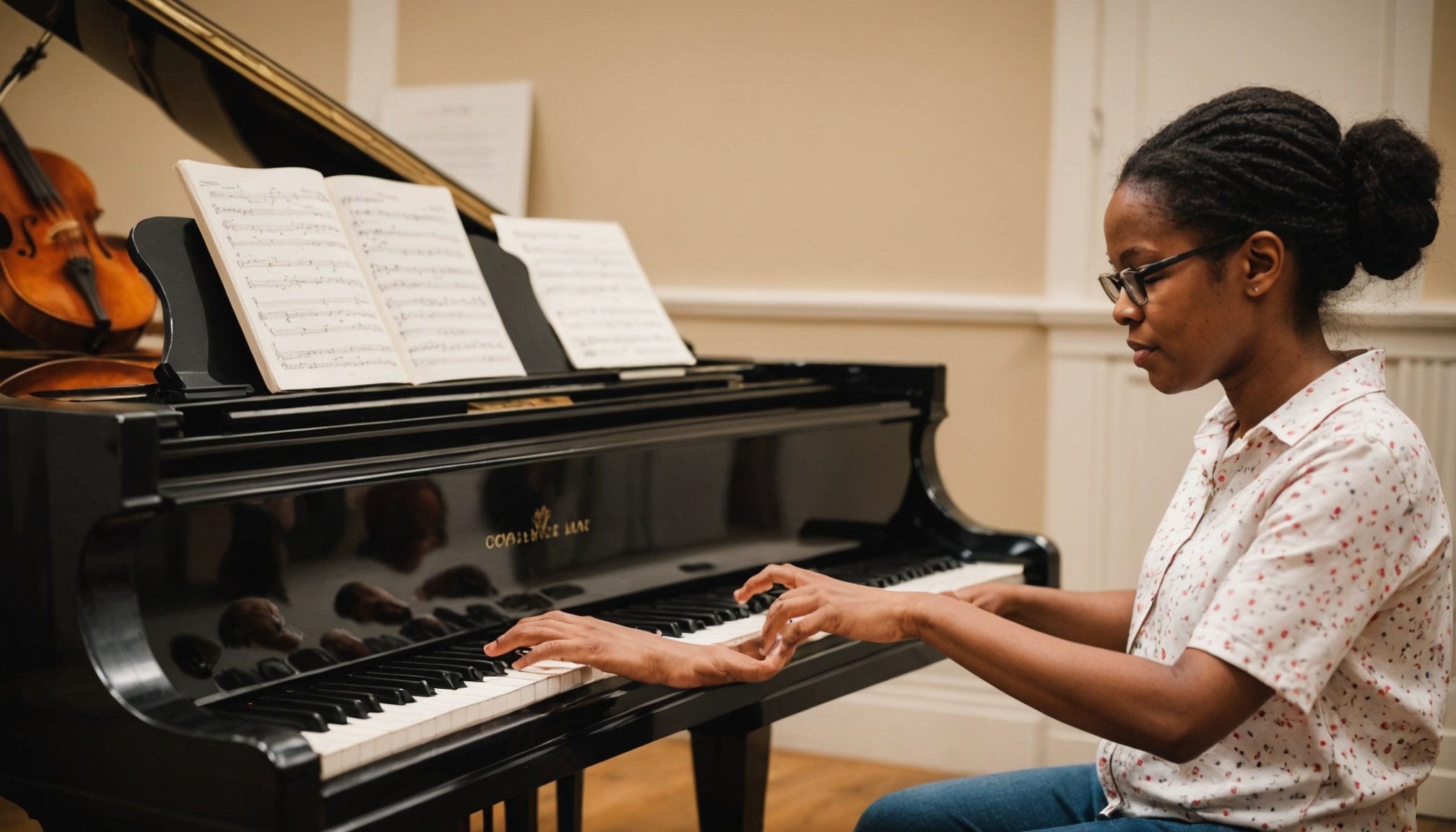Overview of Prenatal Music Exposure Research
Understanding the effects of prenatal music exposure is crucial for recognising its potential benefits on cognitive development. Recent studies from the UK offer compelling insights into this area. The research highlights that prenatal cognitive development is a critical stage where external stimuli can have profound impacts.
UK studies employed diverse methodologies to explore this phenomenon. Quantitative approaches were predominant, measuring specific cognitive outcomes through developmental milestones. In contrast, qualitative methods provided in-depth narratives about the experiences of expectant mothers interacting with music. These methodologies together ensured a comprehensive understanding of the effects of prenatal music exposure.
Have you seen this : Essential Guidelines and Tips for Pregnant Travelers: Air Travel Regulations from UK Airlines
One notable finding was the enhanced responsiveness of newborns to musical notes. Such outcomes suggest that music may stimulate neural pathways early in life, fostering cognitive development even before birth. The UK studies emphasise the importance of carefully selecting musical pieces, focusing on those that invoke positive emotional responses. This targeted approach promises the potential to optimise prenatal environments.
Researchers continue to investigate the nuances of how different types of music might influence developing brains. These studies reflect a growing interest in the integration of music into prenatal care practices, offering a promising frontier for further exploration.
Also read : Top Cooling Strategies for Expecting Mothers to Beat the UK Heatwave
Effects of Classical Music on Cognitive Development
Recent studies in developmental psychology reveal intriguing insights into the impact of classical music on cognitive outcomes. Exposure to classical music during prenatal stages has been associated with enhanced neural processing abilities. Specific cognitive benefits often include improved spatial reasoning and attention retention post-birth. Researchers hypothesise that these positive cognitive outcomes arise from the structured patterns and harmonies inherent in classical compositions.
When comparing classical music exposure to other auditory stimuli, such as ambient or natural sounds, findings illustrate a distinct advantage in terms of influencing developmental milestones. Classical music might uniquely stimulate neural plasticity due to its complex melodic and harmonic structures. This stimulates the brain’s processing capacity, which may lead to an accelerated reach of cognitive milestones, such as memory encoding and problem-solving skills.
In the context of prenatal music exposure, classical music serves as a robust tool for cognitive enhancement. Parents and educators are encouraged to incorporate structured musical forms into prenatal care and early childhood learning environments. Selecting compositions known for their calming yet dynamic qualities might provide an ideal stimuli environment, fostering the child’s cognitive development even before birth.
Methodological Insights from Recent UK Studies
Recent prenatal studies in the UK have employed a variety of research methodologies to explore the impact of music exposure on cognitive development. This section delves into the methodologies adopted, focusing on both qualitative and quantitative approaches.
Qualitative vs. Quantitative Approaches
In examining prenatal music exposure, qualitative methods play a crucial role in capturing the experiences and perceptions of expectant mothers. These methods offer rich narratives that illuminate emotional and psychological responses to music. Narratives not only provide context but also highlight personal variations in response to music during pregnancy.
Sample Size and Participant Selection
Quantitative research often involves larger sample sizes and structured data collection to identify patterns and correlations. In prenatal studies, participant diversity is essential. To ensure representative findings, UK research emphasized selecting participants across various demographics, accounting for different backgrounds and lifestyles, which can influence cognitive outcomes.
Data Collection Techniques
Data collection in these studies employed various tools, from structured questionnaires to observational techniques. The integration of both qualitative and quantitative data provides a robust framework that enhances the validity of research findings, offering comprehensive insights into the nuanced effects of prenatal music exposure.
Implications for Expectant Parents and Educators
Expectant parents and educators can play a pivotal role in fostering cognitive development through intentional music exposure during pregnancy. Integrating prenatal music exposure into daily routines may not only enrich the unborn child’s environment but also create moments of bonding between the parent and the child. For parents, it’s encouraged to select music that is both calming and structured, such as classical compositions, which may stimulate neural pathways beneficial for later growth.
Educators, on the other hand, can incorporate structured music sessions into early childhood music education. These sessions can enhance cognitive skills developed during prenatal stages. Understanding the importance of musical patterns can guide educators in crafting curricula that align with developmental milestones. Such practices serve to optimise learning experiences, laying a foundation for a child’s future cognitive abilities.
By embracing these strategies, both parents and teachers can contribute to a supportive learning atmosphere that is attuned to the cognitive benefits highlighted in recent studies. This approach promises an enriching educational journey from the womb onwards.
Future Directions and Continued Research
The realm of prenatal music exposure offers a fertile ground for future research, particularly in understanding its long-term effects on cognitive development. Current studies primarily focus on immediate cognitive benefits, but less is known about the sustained impact on behavioural, emotional, and learning outcomes as children grow. This gap presents an opportunity for more in-depth investigations rooted in cognitive neuroscience.
These ongoing studies are beginning to explore how early exposure to music might affect neural connectivity and brain structure over time. Understanding these aspects can shed light on the potential for music to enhance or modify learning abilities in later childhood and even into adulthood. Recommendations for future inquiry involve exploring varied musical styles and their distinct impacts on cognitive outcomes.
Another promising research avenue lies in comparing cross-cultural differences in music exposure during pregnancy, recognising the diverse auditory environments different cultures provide. At the core of these inquiries is a quest to untangle the intricate relationship between music and the developing brain, ensuring that findings can be translated into actionable insights for prenatal care practices worldwide. Continued exploration promises to illuminate the extensive possibilities that music offers for bolstering cognitive development from the very outset of life.









